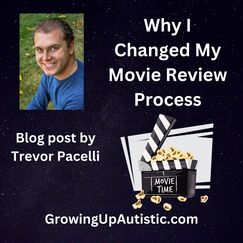 When I was in college back in 2014, I created my movie review blog, TrevorsViewOnHollywood.com, because I found during that time how much I enjoyed talking about movies. So whenever I went to see a new movie, I wrote a review on it and posted it on my blog. At that time, it all seemed to be going fine as a hobby, as there was some generally good feedback about it from friends and relatives. Then when I left college, I started working for my parents’ company, Consetta Group, where they worked with me to develop my own personal businesses, which included my movie reviews. I started to get more serious about it and tried monetizing it further, posting a new review every Friday, which likewise meant seeing a new movie in theaters every week. It was pretty exhausting, especially when I had to see movies I otherwise would never have wanted to see, but this format of reviewing movies motivated me to construct my own elaborate system for grading movies that I continued to perfect and master over the next several years. It helped me improve my ability to assess whether a movie was well-made or not. During this time, I was also heavily dedicated to following the Oscars, which included making predictions each year as to what would be nominated. I kept this up by posting a new review for a new release every Friday even after I left Consetta Group, and for a while, this all seemed quite effective. But then COVID-19 hit. Movie theaters closed. I couldn’t post a review for a new weekly release anymore. At first, I decided to review older classic films, with some direct-to-streaming releases mixed in, but as the months passed with movie theaters still being closed, I was losing my drive to review movies. Even when the vaccine became available, movie theaters opened back up, and life slowly went back to normal, my old passion for reviewing movies was gone. It started to feel like a chore to have to keep up my commitment to posting a new review week after week, and I hated having to sit through the big popular movies that I already knew going in were going to be bad. It didn’t help either that I was losing my respect for the Academy of Motion Pictures. I knew already that they nominated films based on campaigns and not based on filmmaking quality, but leading up to the 2022 ceremony, they were making horrifically insulting decisions to try and bring viewers back. Their decision to remove several of the categories from the live show was the straw that broke my camel’s back; I officially decided that for the first time in six years, I was going to boycott the ceremony. Upon looking back, I made the right decision. So that was one more step forward to dropping this hobby that was no longer fun for me. Yet here’s another thing: having to talk about badly-made movies affected my optimism outside of the hobby. My big “come to Jesus” moment was when I shared a pretty tasteless joke on Facebook about the Depp vs. Heard trial and was called out for it, which convicted me of how writing constant negative reviews for the popular movies was damaging my optimism throughout the day. So I gave it up. I never again posted on my blog. No longer did I feel pressured to see all the new Marvel movies or Disney live-action remakes. No longer did I have to bring a notepad into a movie theater and struggle to see what I was writing in the dark. I was free to watch what I wanted when I wanted. I was free to watch nostalgic guilty pleasures of mine, such as the 2002 Scooby-Doo movie, or older movies I was interested in checking out, such as Bedknobs and Broomsticks. I’m also free now to go to the movie theater on my own terms and watch movies I want to see. So out of my own free will, I saw both M3GAN and The Super Mario Bros. Movie; although neither was what I would consider “good,” I had a fun time with both of them. Then during the week of “Barbenheimer,” I decided to go see both Barbie and Oppenheimer. While I hated sitting through Oppenheimer, I was pleasantly surprised by Barbie. So it was worth joining in on the popularity bandwagon this one time so I could then join in on a conversation I wanted to be a part of. I am currently writing mini-reviews of movies I have seen in the past, and categorizing them to make it easy for people to find something to watch for fun, or other moods. They can be found on Instagram and on our Pacelli Publishing website. Overall, I can’t even imagine going back to my commitment of reviewing one new movie a week on an elaborate grading scale. I’m much happier this way. To learn about movies that depict disabilities, check out my book, What Movies Can Teach Us About Disabilities.
1 Comment
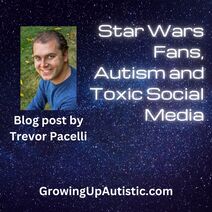 The Star Wars fanbase is an extremely passionate bunch, with strong opinions of all extremes. I have learned much about myself and my relationship with social media because of my interactions with this fanbase. I hope my experience as a young adult with autism and avid movie buff will help others navigate some of the ups and downs of social media. Of the Star Wars franchise, I really love watching the original trilogy, the first two seasons of The Mandalorian, and two out of three films from the sequel trilogy. Now, I’m with everyone else who agrees that the last of that trilogy, The Rise of Skywalker, is hot garbage, yet a vocal majority of Star Wars fans also say the same about the other two sequel trilogy movies that I love: The Force Awakens and The Last Jedi, even saying they’re worse than any movie from the prequel trilogy. Whenever a Star Wars-based social media account posts anything even remotely related to the sequel trilogy, the comment thread is always toxic with hatred for all three of those movies. It presses my need to make my own opinion heard: I believe the first two movies from that trilogy are really good, even better than the entire original trilogy. I realize that putting this opinion out there only starts trouble, as these types of internet trolls are always happy to start fights with anyone who disagrees with them. Yet I just can’t stay away from voicing what I see as the truth, especially with a fanbase as toxic as the one for Star Wars, and I feel an overwhelming need to knock some sense into the idiots in that community, or put them in a position for me to report them and watch them get punished. You can follow this link to read more of my thoughts about all the Star Wars movies that I believe are worth your time to watch. This type of interaction is also tied to my anxiety: I’m afraid that no matter what my opinion may be, I'm always wrong. It doesn’t matter whether my opinion clashes with a child, a Harvard professor, or a jobless troll on the internet, I always doubt my own judgment. Often, when an internet user resorts to throwing insults, I take it a lot more personally than others do; I wonder if what they said to me is true. One time, someone on the internet called me a creepy middle-aged man (even though I'm 30) and it made me wonder if I really am creepy because I enjoy certain media primarily made for kids. Yet as much as I dislike engaging in online fights, I feel the need to do so in order to convince myself that the other is wrong. This addiction has prompted the decision for me to leave Twitter and Facebook. Looking back, I don’t miss those platforms one bit. So how then can others on the autism spectrum navigate a toxic world, especially when online, the place where much of our lives happens nowadays? Well, first off, it’s the duty of a parent to survey their child's internet activity like a hawk. Anyone can get in a lot of trouble online, and not just the illegal kind or the "revealing too much personal information" kind. The internet is full of a lot of scummy people, and the online setting seems to bring out everyone’s worst traits. The anonymity of comments makes spiraling down that rabbit hole of toxicity way too easy. Everyone needs to understand that social media bickering doesn’t do anyone any good. There will never be a winner, only two losers. Unfortunately, social media is much more attractive to kids on the autism spectrum since they don’t have to struggle to read facial cues. I for one am a slow processor when thinking of words to say verbally, and I often get lonely, so I have resorted to starting conflicts with strangers on social media to at least have some form of communication. That’s why I encourage involvement in social clubs and volunteer groups for more chances to meet with people face-to-face, something that we all need, autistic or not. However, because some fans’ hatred of certain Star Wars movies is not fully possible to avoid, and for reasons I’m still working on, I have clung to the fear that I should feel ashamed for loving The Force Awakens and The Last Jedi. I have found that I need to constantly remind myself of the great things done well in those movies. Despite my autism, it’s possible for me to find confidence in my own judgment, and you can do the same if you are on the spectrum. If your lack of confidence in your opinion is causing you genuine stress, then it’s time to shove aside whoever’s saying the opposite opinion. That may mean you have to leave social media, but you should do whatever you need to ignore the opposing argument and remind yourself of why you have the stand you’ve taken. I understand that this is not the familiar “be open to other people’s points-of-view” message, but if someone else’s point-of-view is causing you low self-confidence and diminished mental health, then that’s the time to shut off your ears to the other side. You can see my movie recommendations on our Pacelli Publishing website, and check out my book, What Movies Can Teach Us About Disabilities, which includes a chapter about how autism is portrayed in the movies. 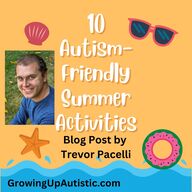 Author Trevor Pacelli wrote about some tips and do's and don'ts for children and adults with autism. See the full article here, and enjoy your summer! 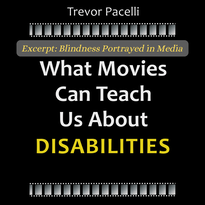 By Trevor Pacelli In thinking back to my childhood, I don’t recall knowing of any blind people at school or anywhere else; my only exposures to the blind community are limited to three media properties: The first is a blind girl named Marina from the hit TV series Arthur, who made a couple of appearances as the friend of a character named Prunella. One of those episodes taught kids the dos and don’ts of treating friends with disabilities, such as not trying to be too helpful unless they specifically ask for help. The second is from Pokémon: Ruby Version; in this game, there were three ultra-rare Pokémon, Regirock, Regice, and Registeel, who needed to be obtained by decoding a series of puzzles with braille descriptions. Being the Pokémon geek I was back in sixth grade, I was so desperate to get to these three legendary beasts that I made my mom drive me to the library to check out a book on translating braille… only to find out the dictionary we had at home already had a braille translator! Whoops! The last is Toph, the blind earthbender from Avatar: The Last Airbender. She used earthbending (or moving rock and dust with her mind) to create a mental picture of her surroundings by using the ground’s vibrations felt through her bare feet. Back then, I didn’t care much about her, mostly because I was a dweeby tween who believed her blindness made her incomplete. Later as an adult, I rewatched the whole series on Netflix, and Toph essentially became my favorite character, not just because of her rough n’ tough personality, but also because of how she turned her disability into an advantage to become “the most powerful earthbender in the world.” Ultimately, I was a pretty privileged kid back then who wasn’t able to consider the struggles of the blind community, which was much different from what I’ve learned in my research for this book. For instance, I discovered that when seeking out accommodations, blind people often lack authority when requesting accommodations from schools and workforces. Among those blind people raised by sighted parents, it’s common for their parents to think little of what their supposedly handicapped child can accomplish, in turn depriving them of fruitful experiences. Read more about the portrayal of blindness in film and media in my book, What Movies Can Teach Us About Disabilities. 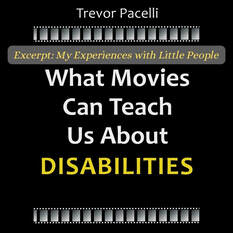 --by Trevor Pacelli I remember loving The Wizard of Oz as a kid. The munchkins scared me back when I was four because at the time I didn’t understand that some people have a condition that makes them smaller than usual. While it wasn’t enough to scare me out of watching the movie, the small people with disproportionate body parts and plastic hair singing like they were on helium left an unpleasant impression on my toddler self. I was always happy whenever it got to the part when Dorothy left Munchkinland because it meant the scary part was over. Throughout the rest of my childhood, television and film were the sole influences that exposed me to anyone shorter than five feet. I saw so many little people playing roles where their height demanded it that I became numb to it. Such roles from movies I used to love included the goblins from the Harry Potter movies, some of the whos from How the Grinch Stole Christmas, the Oompa Loompas from Charlie and the Chocolate Factory, and many funny TV commercials where a little person played an elf, troll, or any other little fantasy creature. Then of course there was the famous, “He’s an angry elf” scene from Elf that still has me on the floor laughing even after the hundredth viewing. The few times I did meet someone in person with dwarfism, my treatment of them fell much more on the dark side. I remember in my sophomore year of high school when I constantly made fun of a cheerleader who (I guess) had dwarfism, with a shoe size of only two. I wasn’t the only one: one student asked her, “Do you need a ladder to pick up a penny?” She also was teased for being able to fit inside a locker. Looking back, I’m so sorry I stooped low enough to join in on the bullying of her and other peers who were shorter than average. My exposure to various media was a massive influence on my belief that little people should be the butt of every joke, and are only half-human (no pun intended) compared to a person of average height. My book, What Movies Can Teach Us About Disabilities, sheds light on negative and positive stereotypes and representations of little people in the movies. Check out my book to learn more about how to better understand 10 different disabilities. 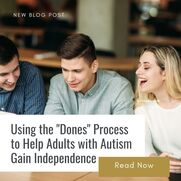 By Trevor Pacelli I’d like to tell you about an autistic man named Kevin. He may be twenty-five years old, but he acts like a teenager. He still lives with his parents in the bedroom he’s had since he was eight. He has a bachelor’s degree in engineering and worked at Taco Time for a few months, but then quit because he didn’t absolutely love the job. That was a year ago, and he hasn’t had a job since then. He never does his own laundry, his mom does all the cooking for him (even making his breakfast), he has no driver’s license, heck, he doesn’t even clip his own nails without his mom’s help. He just stays in his room and plays video games all day every day. He has no expectations for himself. He is convinced that because of his autism, he cannot do any type of job, so his only goal is to complete his newest video game. There are numerous people with autism who are like Kevin. If they aren’t quite as extreme as him, they’ll still most often settle for part-time jobs like flipping burgers or bagging groceries as career possibilities. Those jobs are fine if they enjoy the work, but I believe everyone has the potential for more, and everyone should be pushed to do more. But I understand: I too have autism and believed that the weak communication skills that come with my autism limited my job opportunities. That’s where my parents came in to help. In addition to creating a compatible job for my skillset under their publishing company, my parents helped me learn to do other essential tasks growing up, such as getting my driver’s license, doing my own laundry, preparing my own meals, booking my own flights, and moving into my own home. Now, without their help, I have learned to do more: book my own hotel rooms and rental cars, and finding and adopting my own dog. From what I’ve learned, I feel that every autistic child and adult still dependent on their parents would benefit from a “dones” process similar to what I discussed in a previous article. This process should enable the autistic individual to set monthly goals that lead up to one big goal for the purpose of growth and progress toward independence, no matter where they fall on the spectrum. Following are a few examples of the dones process. Dones Process for Learning to Prepare Meals Let’s say an autistic adult needs to create a six-month goal to start preparing and cooking their own meals regularly. In the first month, a done could be to compile research on healthy diets. The next month, a done could be to make a list of menus. The next month, they could set up a budget for groceries and practice a few shopping trips. The next month, a done could be to take cooking classes. The pattern continues until the six-month deadline when the autistic adult reaches the goal of buying and cooking food independently from their parents. Some more examples of these goals could include:
But how could this work with a lower-functioning autistic adult? One who may not be able to speak and can never have the mental capacity to live alone? Then the goals would be simpler yet still challenging. Someone nonverbal on the autism spectrum who gets meltdowns in public may set a done where after six months a new system helps them avoid them happening. In the first month, the done may be to research potential self-relaxation techniques. In the second month, the done may be to find ways to communicate using certain hand signals. In the third month, the done may be to make info cards that help explain the autistic adult’s disability and how a stranger in a given situation can help. Then by month six, the autistic adult is prepared with all the appropriate techniques and equipment. Some more examples of these goals could include:
This type of system worked for me when I was fourteen. That summer, I still hadn’t learned how to ride a bike, and my parents wanted me to learn. So that was a summer project between me and my mom: by the end of the summer, I would have mastered riding a bike. We first began practicing inside the garage, then progressed to the driveway, then to the parking lot of our nearby elementary school, and eventually, we met our end-of-summer goal. Throughout that next school year, and the year after that, I rode my bike to school a good portion of the time. The Dones Process for Choosing a University There was a similar system I used when I had to decide on a university to transfer to while I was getting my Associate’s degree in community college. I laid out a big chart breaking down the things to seek out in an ideal school, like the cost, application requirements, location, and so on. I had a list of fifty or so potential schools across the country, all with the info filled out. By my June deadline, I set a list of six schools to apply to and made sure to submit the necessary application materials before the deadlines were met. Once I received my acceptance letters (four out of six of them accepted me), I had to spend time weighing the pros and cons of each school. Ultimately, I concluded that the one with the best balance of quality, location and promise of getting a job afterward was in fact… Arizona State University. Looking back, this was the right decision, and I’m glad I went through this long exhaustive process of choosing the right fit for me. The Dones Process for Adopting a Dog In my adult life, I applied a “dones” process completely by myself when I decided to adopt a dog. It was fully my decision to get one and I knew that in order to reach that goal, I first had to seek out dog owners I knew and ask them questions about what to prepare for. In my research, I learned that (due to my condo rules) the dog had to be small and housetrained, meaning this dog couldn’t be a puppy or any bigger than twenty pounds. Once I felt I had enough research, I began filling out application after application to reliable adoption centers until I finally got a call back to meet a terrier mix named Bijou. The morning of the adoption, I did my Petco run to buy the stuff I knew from my research I was going to need, and that afternoon, I met Bijou, filled out the paperwork, and brought her home. Now her name is Bella, and I’m so much happier today than I had ever been before she came into my life. These three experiences of mine should prove why setting goals and subgoals to reach that ultimate goal is so valuable to anyone on the autism spectrum who needs the motivation to care for themselves. I wish the best of luck to you and your autistic child as you work through this journey together. Trevor is an adult with autism and is the author of 6 books about autism and disabilities. 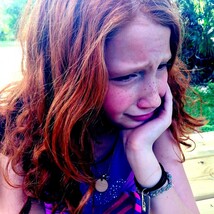 Photo by Pixabay Photo by Pixabay --Guest blog by Vlad Kogan, Nevada Autism Center Are meltdowns creating a daily struggle in your home? Autistic children can face a more challenging everyday life than typically developing youngsters, especially in the areas of sensory processing and communication. Meltdowns can occur in children with autism when they are having trouble communicating their needs to others or are overwhelmed sensorially, emotionally, or informationally. Here are five strategies to keep in your back pocket for when things get out of control: 1. Keep your cool. If you manage to stay calm and collected through a meltdown, you have won half the battle. Modeling calming techniques, such as deep breathing or a self-hug, can help your child pick up some tools to help them regulate while taking advantage of your self-soothing methods. The main goal is to reduce high-energy emotions and not add fuel to the fire. 2. Identify the trigger and change the environment. Consider your child’s environment during a meltdown. Because meltdowns can often originate from sensory overload, reducing the triggers for overstimulation can help (think about lighting, loud sounds, or uncomfortable temperatures). If there is an audience to your child’s meltdown, it’s best to get your child to a quiet, calm space where they can regulate alone with your help. 3. Lower the demand. Start with a shorter period of time and visual cues that indicate what activities must be completed before a break is given. Prior to taking a break, try cutting back the demand on their task. Try alternative methods of communicating with your child, and if they can express their need appropriately, allow them the ability to take advantage of it. This can often help them meet the task again in a renewed frame of mind. 4. Redirect. Redirect the child's attention to a more effective approach to achieve his wants. If they've lost the ability to reason, you may want to try to distract them from the situation for a while so you can simplify it and see if it helps them settle. Personal interests, fidget toys, new activities, and other sources of stimulation are great distractions. Even looking out a window can provide some great opportunities for connection and diversion. 5. Address the problem later. A widely held theory dictates that meeting a person’s most fundamental requirements must come first before moving on to more sophisticated objectives. For example, if a child is overstimulated, sitting quietly and listening to an instructor can be challenging. Like children without autism, those who are chronically hungry or exhausted and either don't realize it or can't successfully communicate their needs for food or sleep are not in a prime position to learn anything new or engage effectively with others. Your child’s physiological necessities must be met before any other behavior can be considered. Trying to logic your way out of their meltdown will be pointless: their fight or flight response has been engaged, and your child will be unable to effectively reason through a problem until the meltdown has passed. It’s important to be patient, not punish, and be present and available for support. As a parent, you can reduce the frequency of your child’s meltdowns by attempting to meet all physiological needs through practical tools such as sensory therapy, visual aids for communication and scheduling, and environmental accommodations. Bridge the communicative gap with your child by utilizing visual tools, additional clues, and clear language and by directly teaching them how to convey their needs to others. --by Trevor Pacelli, author of What Movies Can Teach Us About Disabilities
Autistic people have all sorts of special interests, some are temporary, and others are lifelong. Some even are drawn to a common special interest. Pokémon in particular has quite a bit of appeal to people with autism because the games are run by a simple set of predictable rules that have remained mostly static over many years. It’s a nice blanket of familiarity as someone with autism goes through a long life full of constant change. Every three years, a new generation of Pokémon is always expected to begin, meaning a new set of games debuts with around a hundred brand new Pokémon added to the series. Each game follows a rather similar pattern: you start your adventure after choosing between one of three starter Pokémon, one a grass type, one a fire type, and one a water type, to be your first companion. You explore the region. You battle eight gyms. You take down an evil team. A rival often intrudes your way. Once you win all the badges, you take on the Elite Four and the champion to beat the game. While playing this game, the type matchups resemble a big complex system of rock-paper-scissors following a logic-based system: grass is strong against water, fire is strong against grass, water is strong against fire, and so on. Because many autistic people love numbers and statistics, and because the adorable Pokémon of this franchise are all so vibrantly colorful, researching the stats and type matchups of these lovable creatures offers a lot of comfort for ASD in a sensory-heavy world. It all seems fine and dandy… until the latest games, Pokémon Scarlet and Pokémon Violet, introduced a new Pokémon that reminded the fanbase of a problem that has plagued the entire series since day one that has been particularly troublesome for the ASD community. This Pokémon is Finizen, a cute little blue dolphin whose evolution, Palafin, still looks the same besides a pink heart appearing on its chest. While this Pokémon’s stats start off rather mediocre, Palafin contains a special battle gimmick: When sent out into battle and then called back to the trainer’s party, the dolphin ‘mon changes into its “hero” form, with a Superman aesthetic and insane battle stats rivaling most legendary Pokémon, plus a scary attack stat of 160 (the series’ highest attack stat is 190). What makes these Pokémon even more adorable is that Finizen evolves into Palafin at level 38, a nod to the year 1938, when Superman had his first comic book appearance. Unlike most Pokémon who evolve naturally at a certain level, Finizen only evolves when it levels up to at least level 38 while battling in multiplayer, a feature unique to Scarlet and Violet where up to four friends can connect over Wi-Fi and explore the game together. What could possibly be so bad about this though? Who wouldn’t want a pal like Palafin in Paldea, who evolves while playing with some pals? Well, there are lots of game players, especially those with developmental disabilities, who already struggle to make friends, meaning unless they own a Discord or get lucky enough to encounter a Palafin inside the "tera raid dens" throughout the game, they’ll never get to register Palafin into their Pokédex, and thus will never get to fulfill the series’ slogan of, “gotta catch ‘em all!” This can be true for lots of people who may be socially anxious, not have many friends, or may not have other friends who also play the games, but it’s more especially true for people with developmental disorders, including autism, who already struggle to make friends. This problem isn’t unique to just Palafin, nor is it unique to Scarlet and Violet, way back at the start of the franchise, right from the Red and Blue days, some Pokémon were made to be only obtainable by hooking up link cables into the Gameboy and trading Pokémon amongst friends. The major releases always have two versions for this specific purpose; Oddish could be caught in Blue version but not Red, and Vulpix could be caught in Red version but not Blue. To add to that toilsome grind, some Pokémon, such as Machoke, Kadabra, and Graveler, could only evolve by trading. Bottom line, nobody could ever complete the Pokédex of any of these games without having friends to trade with. With the whole “gotta catch ‘em all” message that was pressed in the franchise’s early years, it seemed to punish players who didn’t have friends. This is why the game Pokémon Legends: Arceus was revolutionary for the series… since the players at last no longer needed others to complete the Pokédex. Kadabra, Machoke, and Haunter now evolved simply by being given a new in-game object called a "link cable," and version-exclusive Pokémon were gone; all Pokémon in the Pokédex were available in the same game cartridge. Yet even without the need for this game, the past few generations have made trade-exclusive evolutions, such as Gengar, Machamp, and Dusknoir, available to find in the wild. Thus, it was easier for a player to battle with that one powerful Pokémon on his team as well as fill the dex up. But version-exclusive Pokémon didn’t go away in the major games that came in two versions, especially not in Scarlet and Violet. So in the span of a year, with the existence of Palafin, GameFreak took one step forward and two steps backward. In future games, the online "trade" component of the games really should be exploited further to make completing the dex easier for people who may struggle to make friends for any number of reasons. I propose that it should be made possible for someone to make a request online for a specific Pokémon they want, and some other player online at some other time could fulfill that request by trading with that person that specific Pokémon they need. As for Palafin, its evolution method just needs to change. It’s uncertain whether the "multiplayer" feature from Scarlet and Violet will be around in future mainline Pokémon games, so Finizen needs a simpler evolution method, such as by maxing out its happiness with its trainer. If it’s been done before with Feebas’ evolution into Milotic, or Eevee’s evolution into Leafeon, Glaceon, and Sylveon, then surely changing a Pokémon’s method of evolution can be done for Finizen as well. There are other ways Pokémon isn’t disability-welcoming, starting with its treatment of shiny Pokémon. Each Pokémon has a "shiny" variant with a different color palette, averaging at a 0.01220703125% encounter rate, and many serious players regularly commit dozens of hours to obtain just one shiny of a particular Pokémon. Pokémon Legends: Arceus had a revolutionary new feature in its programming that made shiny hunting infinitely easier; not only do they now appear in the overworld as opposed to exclusively in battle, but a little chime sound effect also goes off with these little stars that glitter around the Pokémon, indicating right away that it’s a shiny. However, Pokémon Scarlet and Violet left out the stars and sound effect; although the shinies still appeared in the overworld, shiny hunting was still much harder than in Legends: Arceus. Most Pokémon’s shinies can be noticed pretty easily, such as Lechonk’s shiny being bright pink instead of its usual black and brown, but others’ colorations are so minuscule that even one with great eyesight couldn’t tell them apart unless they were paying very close attention, like Paldean Tauros’ shiny being just two slightly different shades of black from its original. It may sound like no big deal, but what if a colorblind player wanted to shiny hunt? They wouldn’t be able to benefit from the sound effect to let them know a shiny was nearby. Or what if somebody had hearing problems? They wouldn’t be able to benefit from the little stars that appear. On the note of these mainline console games feeling like steps backward from the game before it, many fans have for years complained that it’s time for the games to put in voice acting. They say it’s awkward to watch the lifeless character models move their lips silently while they’re forced to read the text on the screen to know what they’re saying, and with the series now on the Nintendo Switch, they are without excuse to still not have voice acting in their games. Although it’s understandable why the games still lack voices (it’s expensive, and would not fit with when the NPCs talk to the main character… who has a customized name). Although, the games could still benefit from voice actors, which would help blind and dyslexic game players. One last way Pokémon isn’t entirely accessible for people with disabilities is in Pokémon Go. Wheelchair users have reportedly struggled to access numerous areas the mobile game made them go to, and the act of carrying a phone around while playing proved difficult for players with physical disorders such as motor impairment. Gladly, the COVID-19 pandemic forced the game’s developers to include more stops that also happened to be more accessible for people who maybe couldn’t leave their homes because of physical disabilities. These types of issues about accessibility in Pokémon, and other video games in general, really need to be made more apparent, because there’s a valuable symbiotic relationship between people with disabilities and this long-lasting series. BBC even did a story on an anxiety-stricken autistic teenager who spent five years refusing to leave his house, and Pokémon Go finally persuaded him to step outside. Stories like this are why I’d like to see more community meetups for people who play the main Pokémon games, and not just for the trading card game or for Pokémon Go. I went to one this past year that was a part of PAX West 2022, and it was an awesome time for me to meet others with the same interest as me, others I could trade and battle with in person. But I want to see something more regular than that happen in my own community, something that can easily help more people like me form friendships over a common interest. I was one of those kids who didn’t naturally value friendships up until high school and only ever invited another kid over to my house to trade Pokémon with about three times, so having something like a regular Pokémon club would have helped me immensely in not only making friends but learning about the value of friendships. --Trevor's Books | Trevor's Murro Region Pokemon Instagram Page Honest thoughts from 30-year-old Trevor Pacelli, adult with autism and author of What Movies Can Teach Us About Disabilities, Six-Word Lessons on Growing Up Autistic, and illustrator of The Kindergarten Adventures of Amazing Grace. See all of his books at TrevorPacelli.com I don’t want to be known as somebody with autism, I don‘t want to be known as autistic, I want to be known as just Trevor. Despite the "disability pride" stuff I see everywhere, I'm among the minority who hates my autism and wishes there was a cure; while my heavily organized mind and wild imagination are great bonuses, I would give that all up in a heartbeat to enjoy relationships the same as everybody else. Social Anxiety My anxiety most kicks in during social situations, even little ones like sudden small talk. If I pass by a stranger on a street and s/he says to me, "hi," I internally freak out because then I must abruptly transition out of my mind to say words. Part of that could come from stressful interactions I’ve had in trying to talk with people who have foreign accents and don’t speak English too well, it’s harder for me to understand them, and it only got harder during the COVID-19 mask mandate. It's equally as hard for me to look the other in the eye while I’m talking to them because knowing that they’re staring into my soul as I speak builds up inner pressure akin to that of stage fright. It makes sense for me that I have this problem considering my speech delay—while an idea may float around in my head, it takes longer for my tongue to adapt that image into words. My speech pattern mostly involves me pausing to come up with the right word until the other person just finishes my sentence for me, and when telling a story, the events would usually be told out of sequence. So if a stranger approached me for directions, I often say, "Sorry, I can’t help you" because of my incapacity to put my thoughts into words or even remember street names. Lately, my anxiety attacks have gotten to the point where I get one for no apparent reason and become physically unable to speak. One time, I retreated into the bathroom away from the social group I was in, and for around a half hour I fought against myself to walk back out—just reaching for the doorknob felt impossible because some invisible force kept pushing me back. Stimming The Merriam-Webster Dictionary definition of stimming: "Behavior that is marked by a repetitive action or movement of the body (such as repeatedly tapping on objects or the ears, snapping the fingers, blinking the eyes, rocking from side to side, or grunting) and is typically associated with certain conditions (such as autism spectrum disorder)." Usually, people who stim are unaware of their behavior unless someone else points it out to them, and I’m no exception as I do it constantly throughout the day. I may knock my knee, rock forward and back, wrap the hoodie string of my sweatshirt around my fingers, tear apart napkins and used coffee cups, repeat phrases to myself out loud, or flap my hands. The stims happen most often during the ever-so common event when a painful memory pops up in my head, and I make some random unexplainable lip and hand gestures to fight off the mental pain. You can imagine how I would always have difficulty sitting still or doing other things that require stillness, such as praying. Sensory Issues Besides talking, my autism also affects my sleep, to the point when a night of a full seven or eight hours of sleep is an extreme rarity. Often, if I'm on vacation, it takes hours to fall asleep, and I then wake up hours before the sun rises, especially if I have to sleep on the couch. It’s one of the reasons why travel is so anxiety-inducing for me; among the other reasons include the change in routine, weather, and time zone, not to mention being around people for hours on end. Camp was worse though; while vacations can be planned right down to the bathroom breaks, at camp, everything’s designed to be spontaneous. For the most part, camp leaders seldom ever tell the campers what to expect each day; one time, I along with the other boys were forced without warning to spend the whole night sleeping outside in a tent in the snow. It was supposed to be a lesson about the challenges we must take on as men, but I just kept panicking about how cold and numb I was and wanted so desperately to go home. Camp also forced us to stay up late and wake up early, and the games were all very physical and loud. Plus, the faraway locations of the camps often had extreme temperatures, and the buses transporting us always broke down, causing us to arrive many hours later than originally planned. (One time, the snow conditions were so bad that we had to stay at our campsite a full extra day as we waited for buses to arrive and drive us home.) So since most kids with autism find so much security in routine and predictability, a camp could be counterproductive to helping them grow. Special Interests I had several special interests growing up, some of which I’m not proud of for being transfixed onto. Those included:
As for Pokémon, did you know that its founder, Satoshi Tajiri, could be autistic? It would make sense because the series’ concept of exploring a fantasy world that one could customize with their team of cute little creatures has a lot of appeal to kids on the spectrum (and adults on the spectrum at that). Yet the franchise has been so near and dear to me after all this time mostly because I love to design my own Pokémon. That itself is an entire branch of fans in the Pokémon fandom, known as the “Fakémon” community, which furthermore gives me a sense of belonging somewhere. So I now run my own Fakémon Instagram account: @murro_region. High School Every time the teacher from any of my classes told the students to form groups for a project, I was that student who needed to have my team picked for me because everyone else already made their picks with their closest friends. When breaking into groups of two, I always ended up in a group of three, had to work with the teacher, or had to do the project by myself. This happened even if I had others from my social clique in my class who called me their friend. They would always save seats in advance for their much closer friends, and I would ask, "so where am I supposed to sit?" and they would then tell me, "you can sit anywhere you like." This meant I never got the privilege of getting to sit close to the ones whom I most wanted to develop friendships with, inside or outside the classroom. These "friends" of mind didn’t even care if their shoving me aside meant I had to eat at a table by myself, as long as they got to sit with their own closest friends. After school would end, and I was talking with them in the hallway, they would often say to me, "We’re going to go hang out somewhere now. See ya!" I never got an invitation to join in, even though I had the time to do so. Although they told me they appreciated me and valued me and considered me a good friend, their actions instead gave me the impression that they secretly preferred if I wasn’t around, and were just politely tolerating my presence. High school was made up entirely of me watching the other kids from my social clique become the center of many running jokes, but a running joke (or even a standalone joke) about me was never made. At the time, Facebook was at its most popular, meaning my high school experience was made all the worse by the photos of them all having fun together without me, which gave me a horrible case of FOMO (fear of missing out). School dances were the worst part of it because no girl ever wanted to be my homecoming date, and no girl ever asked me to any of the tolo dances. Although I did find a date to my senior prom and did join a group, the shoving aside of me only continued, as while they all got to carpool together, my date and I were by ourselves in my car. Then my date had to leave the dance early, so I was alone on the car ride back. Looking back, I wonder if it was a waste of time and money for me to go to my prom and if I was better off staying home. However, I will admit I had a few toxic traits back then. I was so depressed more days than not, and I resorted to spreading my bad mood to everyone else, in hopes that they’ll show me pity and ask me what was wrong. Stuff like that humbles me and makes me think, "no wonder nobody wanted me around!" Not that it excuses their treatment of me, because to this day I still consider high school to be the worst years of my life; had it not been for my Christian faith, I would have killed myself at some point during that time. It's Better Now! Yet later in my adult life, once I began to take daily medication, I saw an enormous improvement in my well-being. Perhaps the most therapeutic thing for me has been living with a pet, seeing how I was so close with the family cat as I grew up. Four years after the cat passed away, I decided it was time for me to get a pet of my own as a source of self-therapy. Now, I am the proud dog father of an adorable little terrier-mix, and since then, my suicidal thoughts and deep pits of depression have been almost nonexistent. Greater still, my quality of friendships has improved. I found friends at my local church who put in their best effort to accept me for who I am and treat me as an equal. They know me as the food, movies, and pun guy, and always refer to me when they want to know my opinion about a movie or hear about a weird combo of foods that they think sounds like something I would try to make. Once, one of them even sent a text message with a pun to one of the others, and the other responded, "Haha, you just pulled a Trevor!" That in particular meant a lot to me because it was a sign of me finally gaining the acceptance in friendship I’ve wanted and needed since high school. So while I prefer if I wasn’t autistic, and it will always provide challenges for me until the day I die, the fact that progress has been made is a testament to readers like you about the humanity of anyone with a disability. In terms of interacting with people like me, here are some things to know: Talking to Others with Autism Don’t:
Learn more about Trevor at TrevorPacelli.com
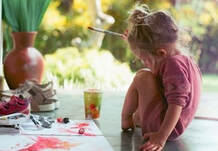 Photo by Unsplash.com Photo by Unsplash.com Guest post by Erica Francis Painting, dancing, and music are some ways your child with autism can express themselves creatively. Having a creative outlet helps them reduce their anxiety and escape their worries. Check out the creative outlets below: Painting Encourage your little one to paint. Give them a palette with different colors and brushes of different thicknesses and let your child go to town. Autism Parenting notes that painting can allow your child to express themselves, even if they aren't verbal, and it may help build confidence. Music Whether you're encouraging your child to listen to music, play an instrument, or sing, it could benefit them. When listening to music, the right and left hemispheres of the brain are stimulated. Professionals use music as part of autism therapy for this reason. In fact, Percussion Play points out that music can improve language development as well as cognitive function. Try using a drum or rhythm sticks. Take turns developing patterns and repeating each other's rhythm. Dancing Dance therapy helps to reestablish the body-to-mind connection. Dance improves concentration and attention and helps children express themselves, even if they're nonverbal. In a group setting, dance can help build social skills. The repetition of dance moves enhances memory. Give them an opportunity to create a dance and demonstrate it to you, which is also a good time to spend more time with them and show you care. No matter how busy you may be with raising your child on the spectrum, carving out time to share artistic experiences pays huge dividends both now and into the future. Try playing Night at the Museum, where one person is the museum guard and turns their back on the others, who must dance or move in some way until the guard turns back around. The aim of the game is to not get caught moving when the guard turns around. Give Your Child an Art Room If you have an unused room in your home, consider dedicating it as an art or crafting room. whether it's a den, a spare bedroom, or your unfinished or finished basement. Add a variety of supplies into the room, such as markers, rhythm sticks, paints, crayons, and more. Organize the supplies so your child can easily reach them. General Rule with Art for Autistic Children If you're creating activities, remember to adapt them to your child based on their skill and condition. Art shouldn't be frustrating for a child. When you notice them struggling, it's okay to accommodate them. Create both open-ended and closed-ended projects. Open-ended art projects allow children to express themselves and get creative. On the other hand, closed-ended assignments help them follow instructions and build specific skills. |
Inspiration for Life with AutismThis blog has a variety of articles about people living life with autism, and topics and ideas that can help in the journey. Guest bloggers are welcome. Inspired by Trevor, a young adult film critic, photographer and college graduate on the autism spectrum. Categories
All
Archives
July 2024
|
Proudly powered by Weebly
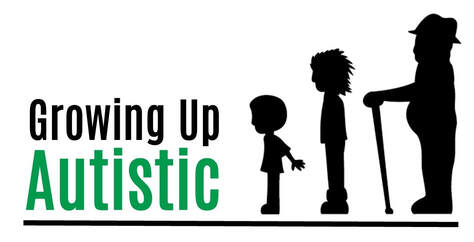
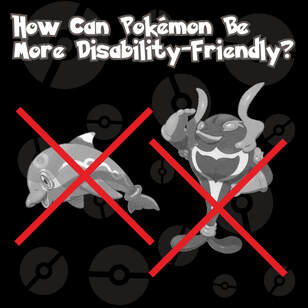
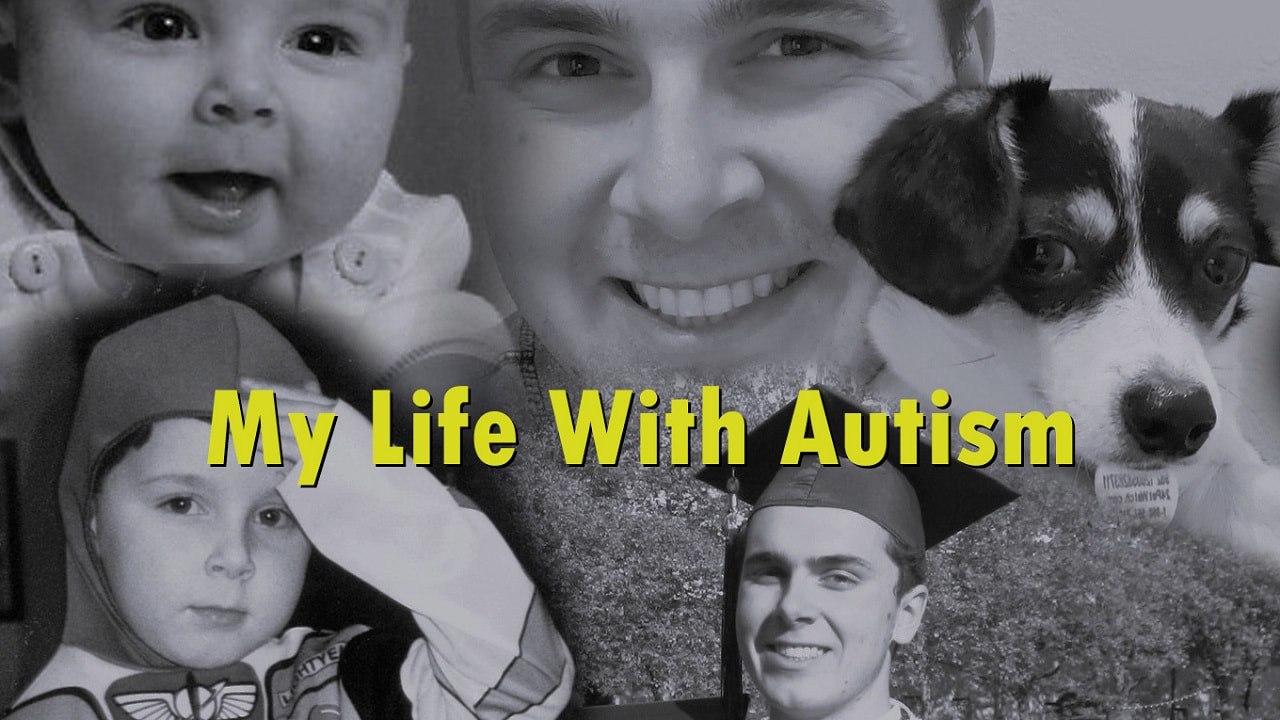
 RSS Feed
RSS Feed